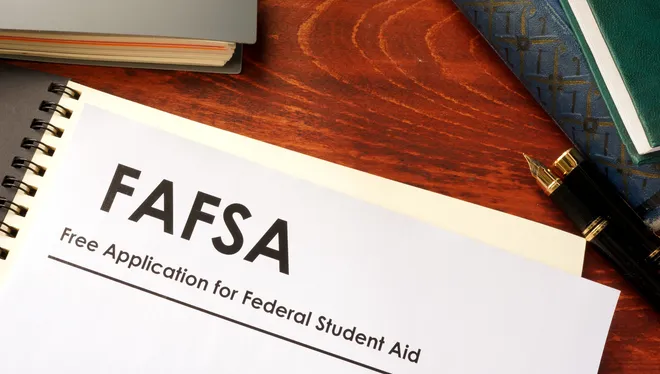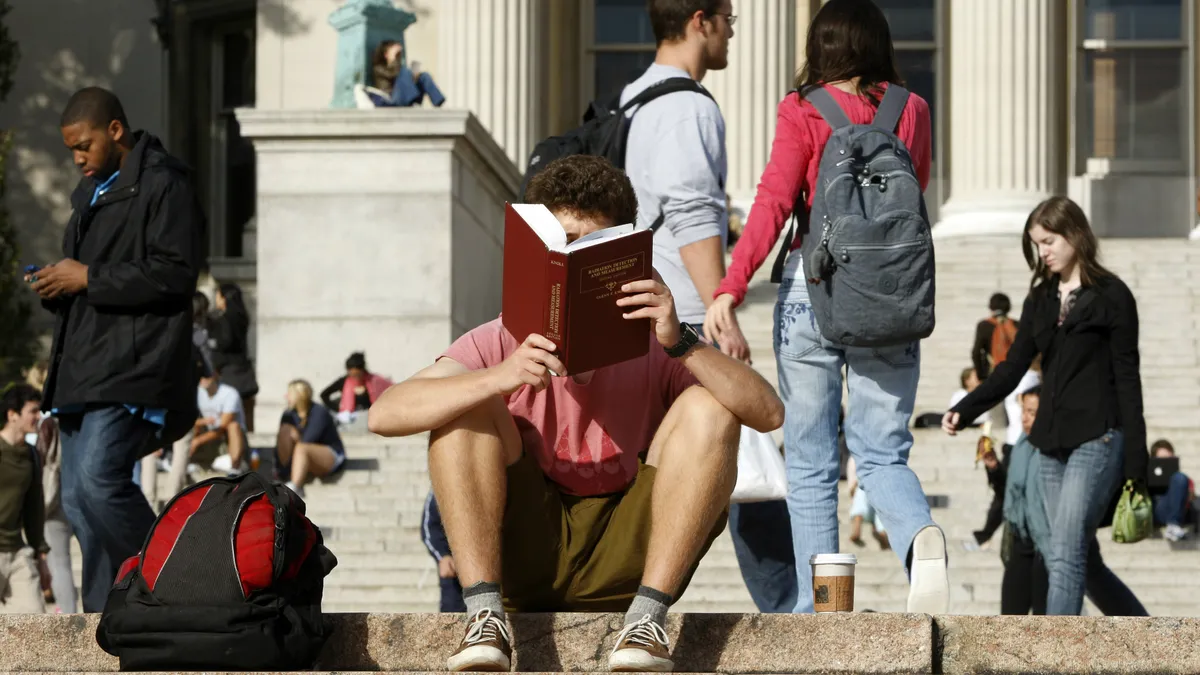In an unexpected turn of events, colleges across the United States are grappling with delays and unforeseen problems related to the Free Application for Federal Student Aid (FAFSA), following long-awaited improvements announced by the Education Department in December. The FAFSA, a critical component of the higher education system, has been subject to a bungled rollout, prompting concerns and adjustments from educational institutions.
Mercedes Amaya, Associate Vice Provost at Miami Dade College, finds herself navigating the challenges of financial aid both professionally and personally. The Education Department’s recent changes to the FAFSA have disrupted the usual college application season, causing delays that have affected millions of students and raised questions about the Biden administration’s overhaul of the financial aid system.
The most recent setback occurred when the Biden administration announced that colleges and state agencies would not receive students’ FAFSA information until the “first half of March” at the earliest, contrary to the initial assurance of late January. The delay was attributed to a major error in the new form, where families’ incomes were not accurately adjusted for inflation. As a result, the timeline for colleges to process and offer financial aid has been thrown into disarray.
In a normal year, colleges would have had access to this data much earlier, but the glitch has pushed back the timeline, potentially leaving students with just weeks to make crucial decisions about their education. The traditional May 1 commitment deadline for many schools looms, raising concerns about the impact on students and their ability to make informed choices.

Read more:
- Diversity Prohibition in Texas Public Colleges: Effects on Students and Multicultural Organizations
- High School Athletes in Florida May Soon Benefit from NIL Opportunities
- Student Consequences Authorized for Supporting Hamas
- Student Loan Realities: The Shift from Pause to Panic for Borrowers
The Education Department, recognizing the gravity of the situation, has promised to address the error and work towards a resolution. However, the repercussions of the bungled rollout raise questions about the Biden administration’s broader efforts to expand financial aid eligibility for students.
The overhaul of the financial aid system is touted as the most significant in over 40 years, with officials claiming that 610,000 more students will be eligible for financial aid. The promise of increased accessibility to college education is at the heart of these changes. Yet, the current challenges and uncertainties stemming from the FAFSA rollout create a potential deterrent for vulnerable students, and the trade-off between expanded eligibility and potential deterrents remains uncertain.
Mercedes Amaya acknowledges the difficulties faced by students in this unprecedented situation, stating, “We’re going to have to adjust. It is what it is.” The frustrations extend beyond delays in processing FAFSA data; the form itself still presents challenges. For example, parents without social security numbers face difficulties submitting the form, disproportionately affecting immigrant families.
The Education Department has committed to addressing these issues, but the lack of clarity on when the problems will be resolved adds to the challenges faced by students like Angie Jaral, a 19-year-old freshman at National Louis University in Chicago. Jaral’s stepdad lacks a social security number, preventing her from submitting the FAFSA, and the uncertainty adds to her frustration.
As colleges grapple with the ongoing delays, calls to push back the traditional May 1 cutoff are increasing. Some institutions, like Oregon State University, have already announced postponements of deadlines, recognizing the constraints imposed on parents and students. The uncertainty surrounding the timeline and the glitch-ridden FAFSA form have led to a frustrating period for colleges and students alike.
Rachelle Feldman, Vice Provost of Enrollment at the University of North Carolina, Chapel Hill, expresses her frustration, stating, “This year has been beyond frustrating. March is quite the curveball.” College administrators had previously warned the Education Department about inflation problems with the new income formula, but the correction was made at the eleventh hour, contributing to the current challenges.
The potential consequences of the FAFSA controversy have prompted a federal government watchdog, the Government Accountability Office (GAO), to launch an audit of the delays. Congressional Republicans, including Sen. Bill Cassidy, have raised concerns about the messy rollout and its impact on students’ decisions to pursue higher education.
The Biden administration’s response emphasizes their dedication to making college more accessible, citing significant changes to the financial aid system despite facing challenges with funding from Congress. The ongoing situation poses challenges for colleges, students, and the administration, and the full extent of its impact remains uncertain.
As colleges navigate the complexities of this unprecedented FAFSA rollout, the focus remains on ensuring that students can access the financial aid they need for their education. The trade-off between expanded eligibility and potential deterrents becomes a crucial consideration, and the audit by the GAO adds another layer of scrutiny to the Education Department’s handling of this critical aspect of higher education.

